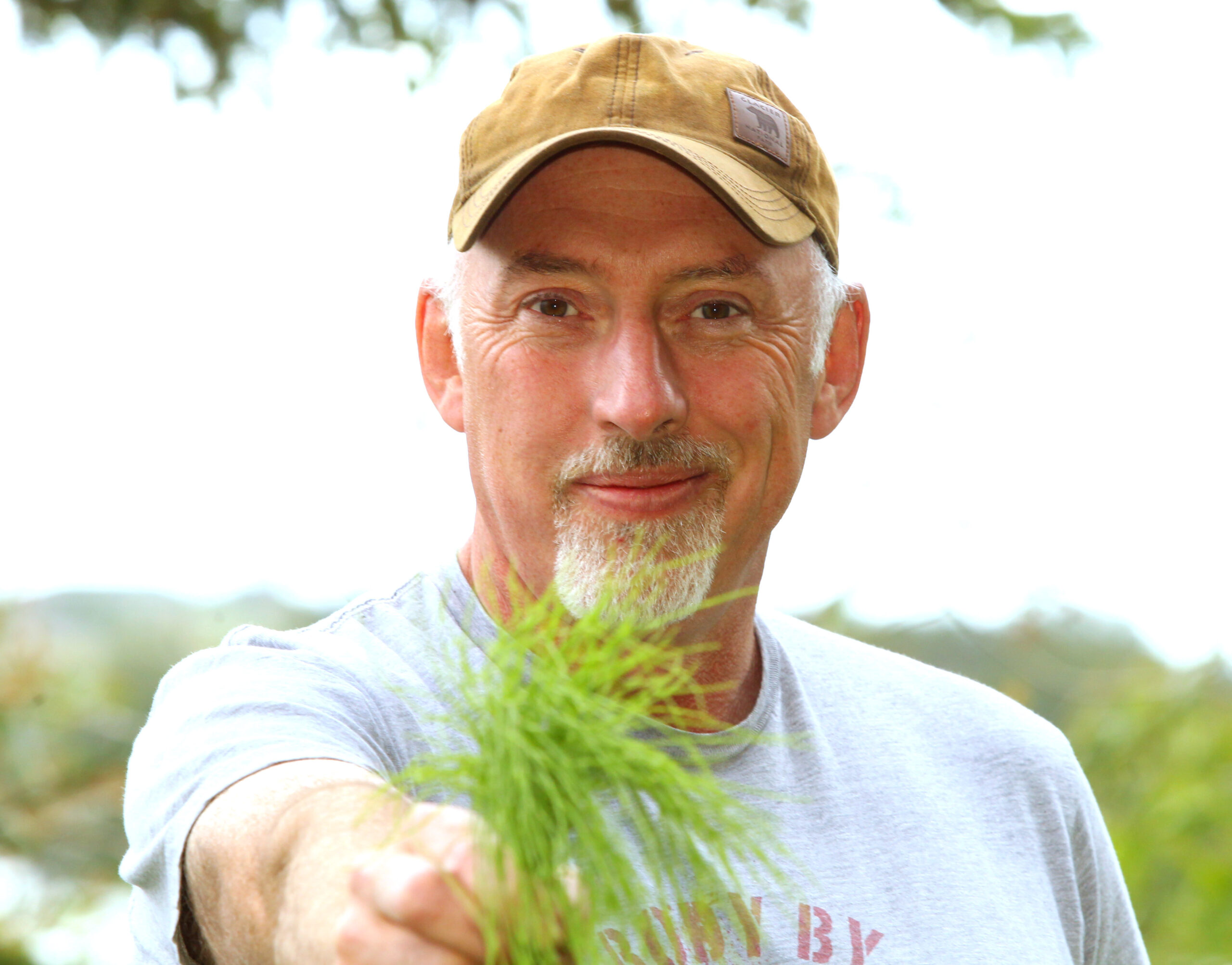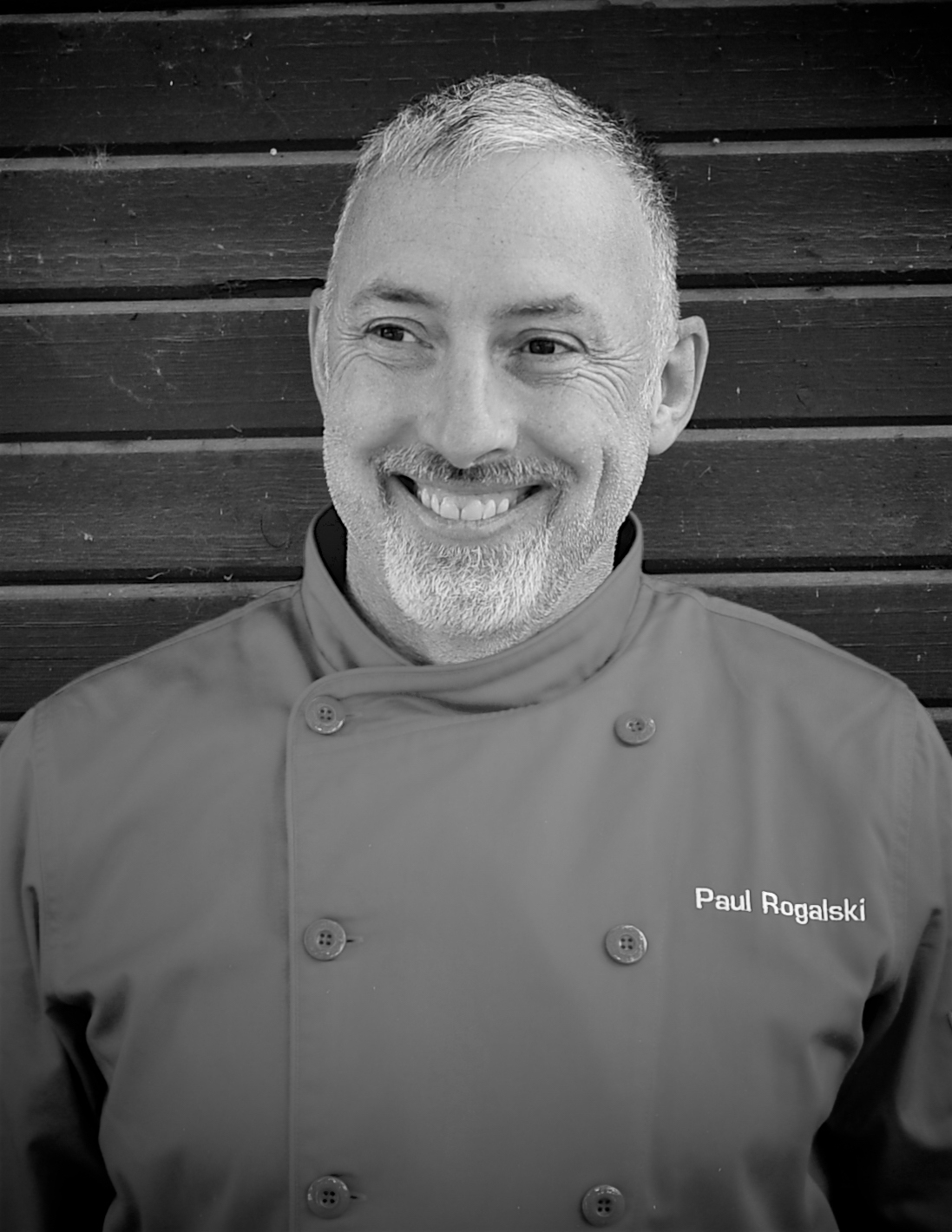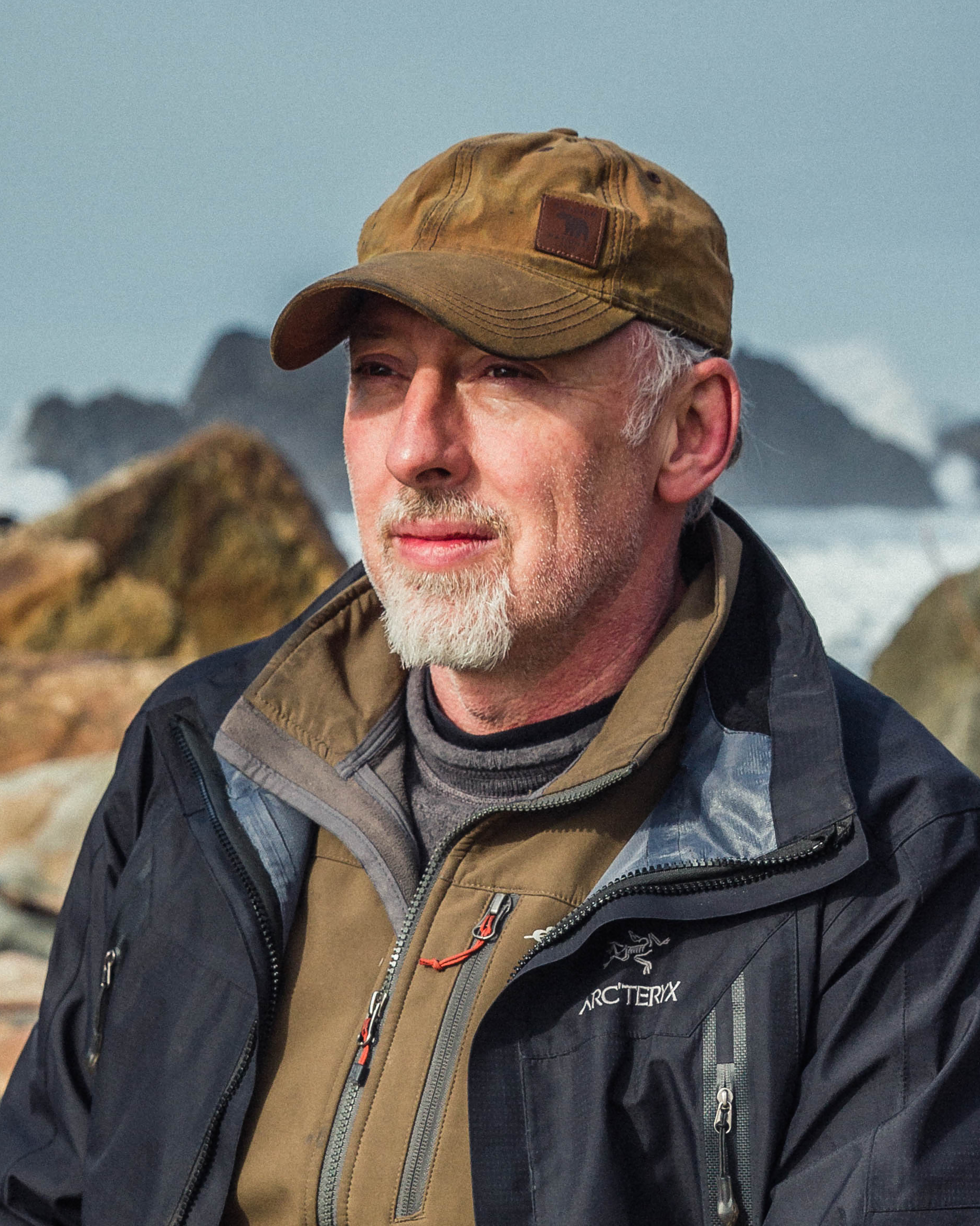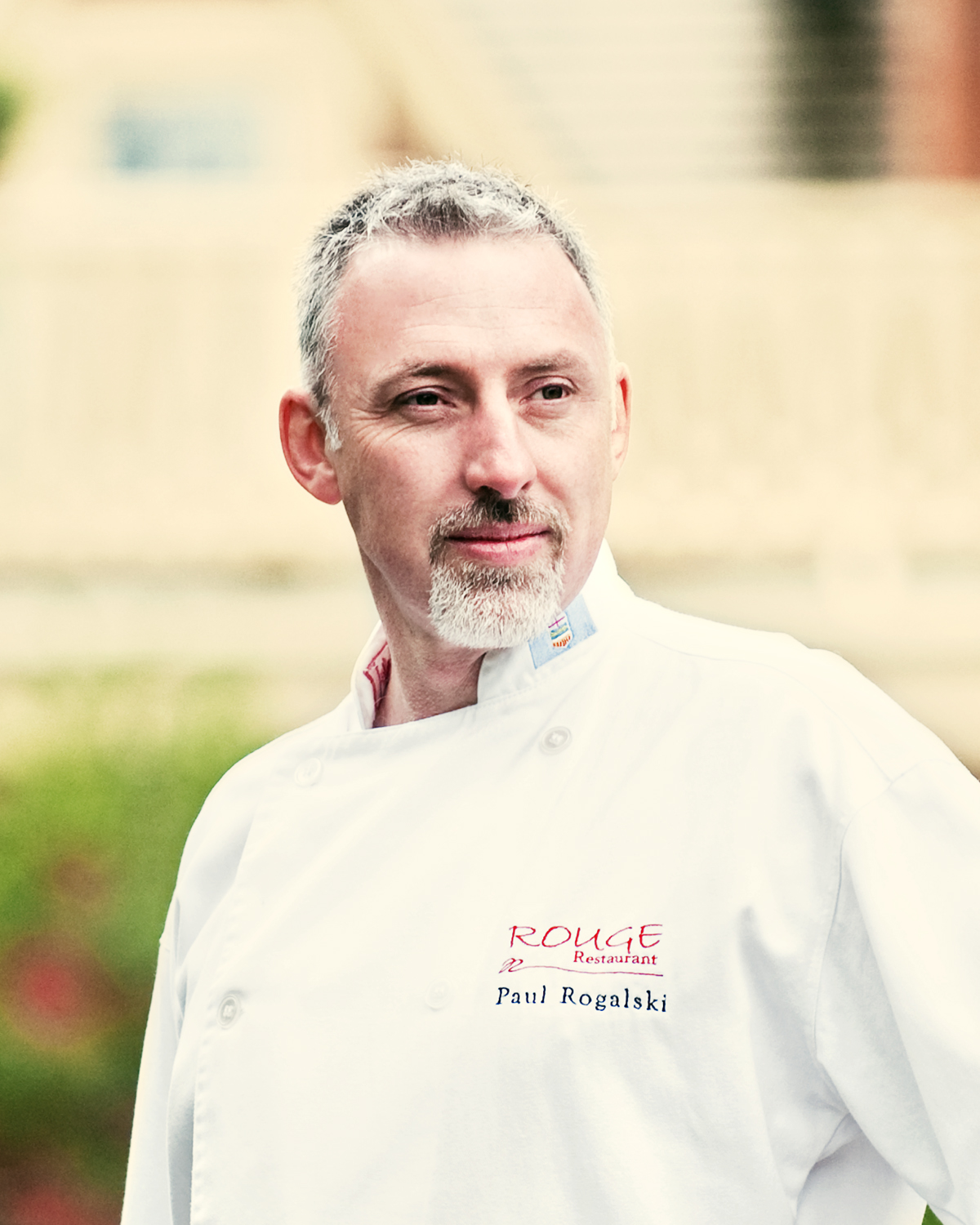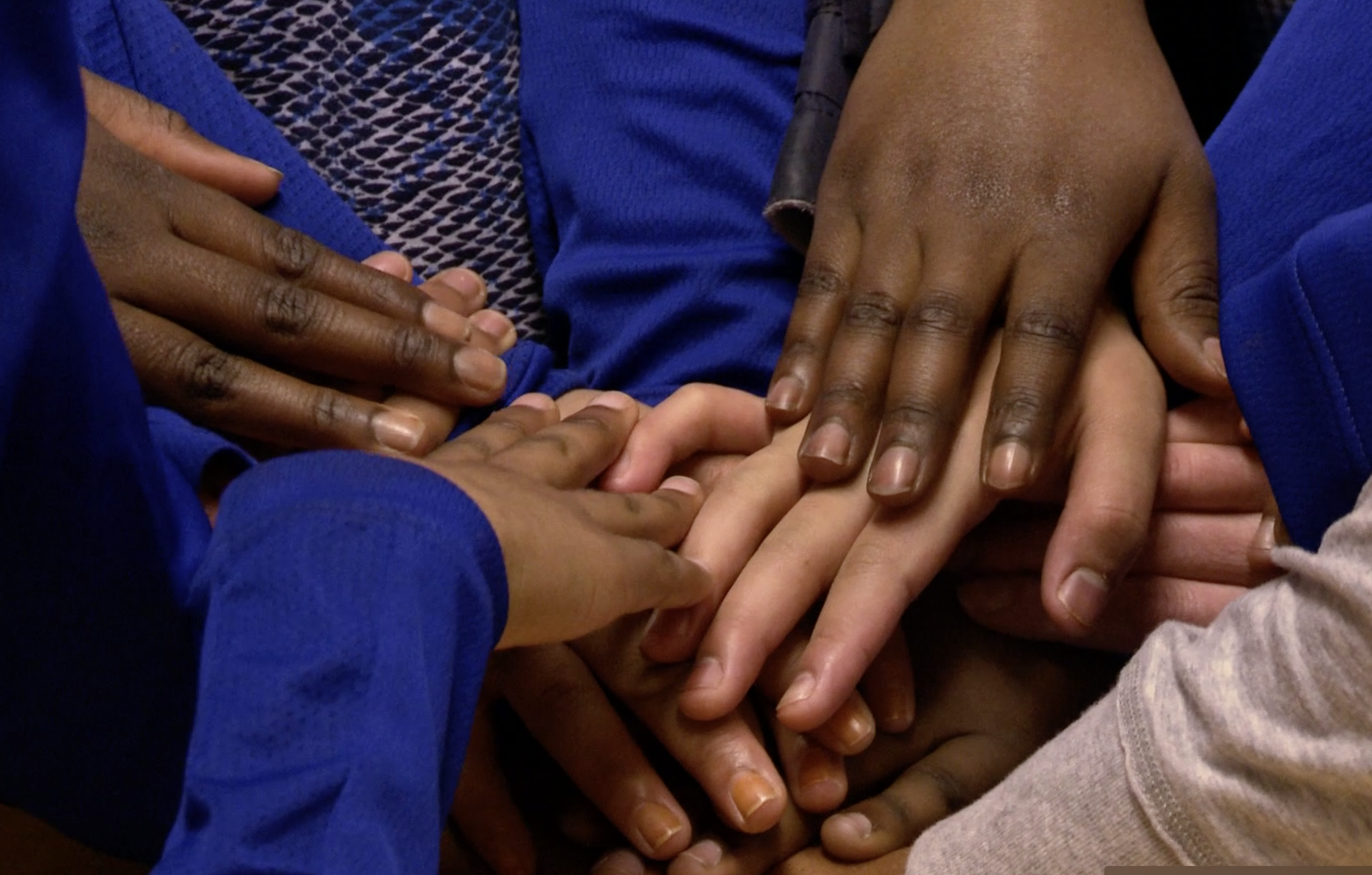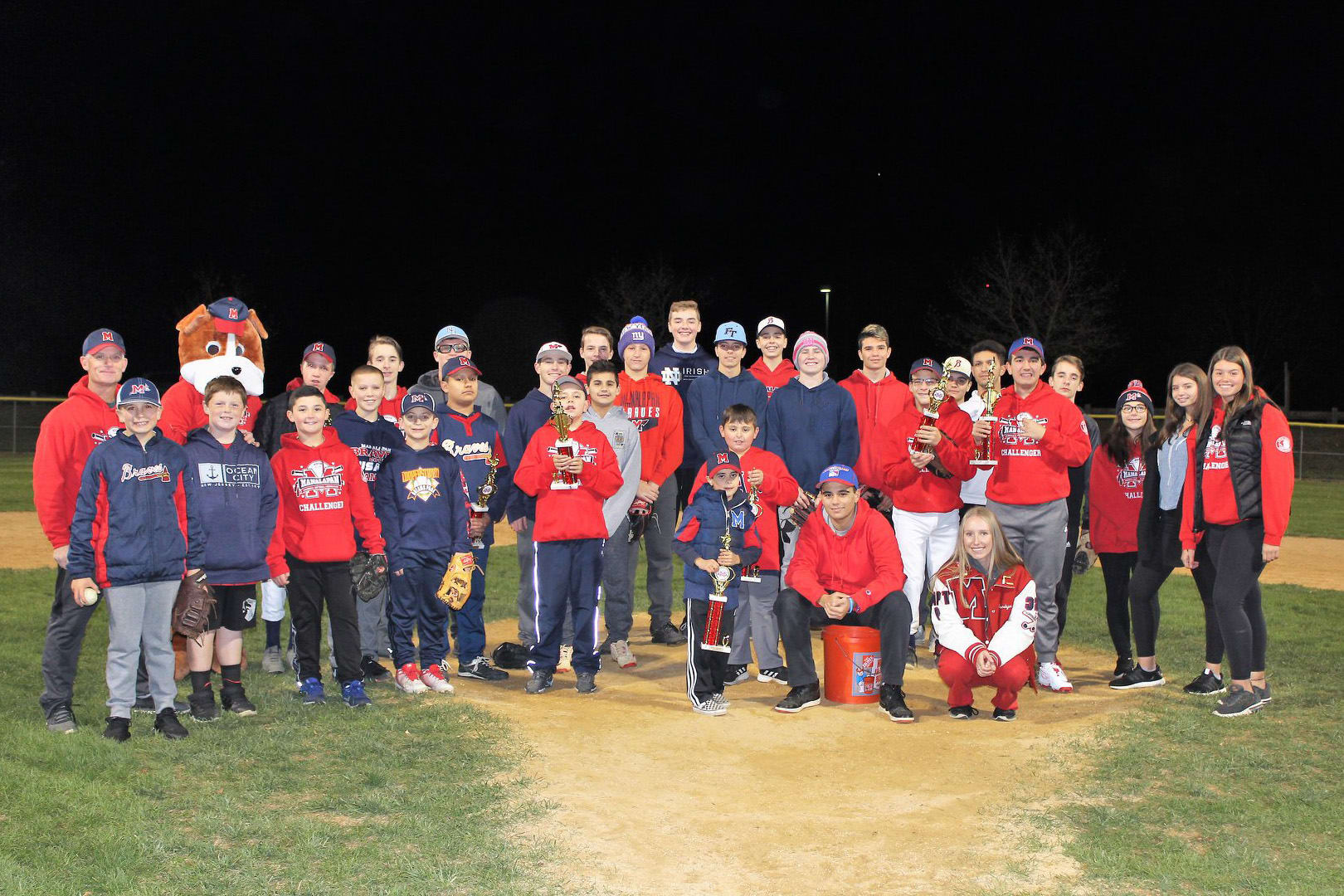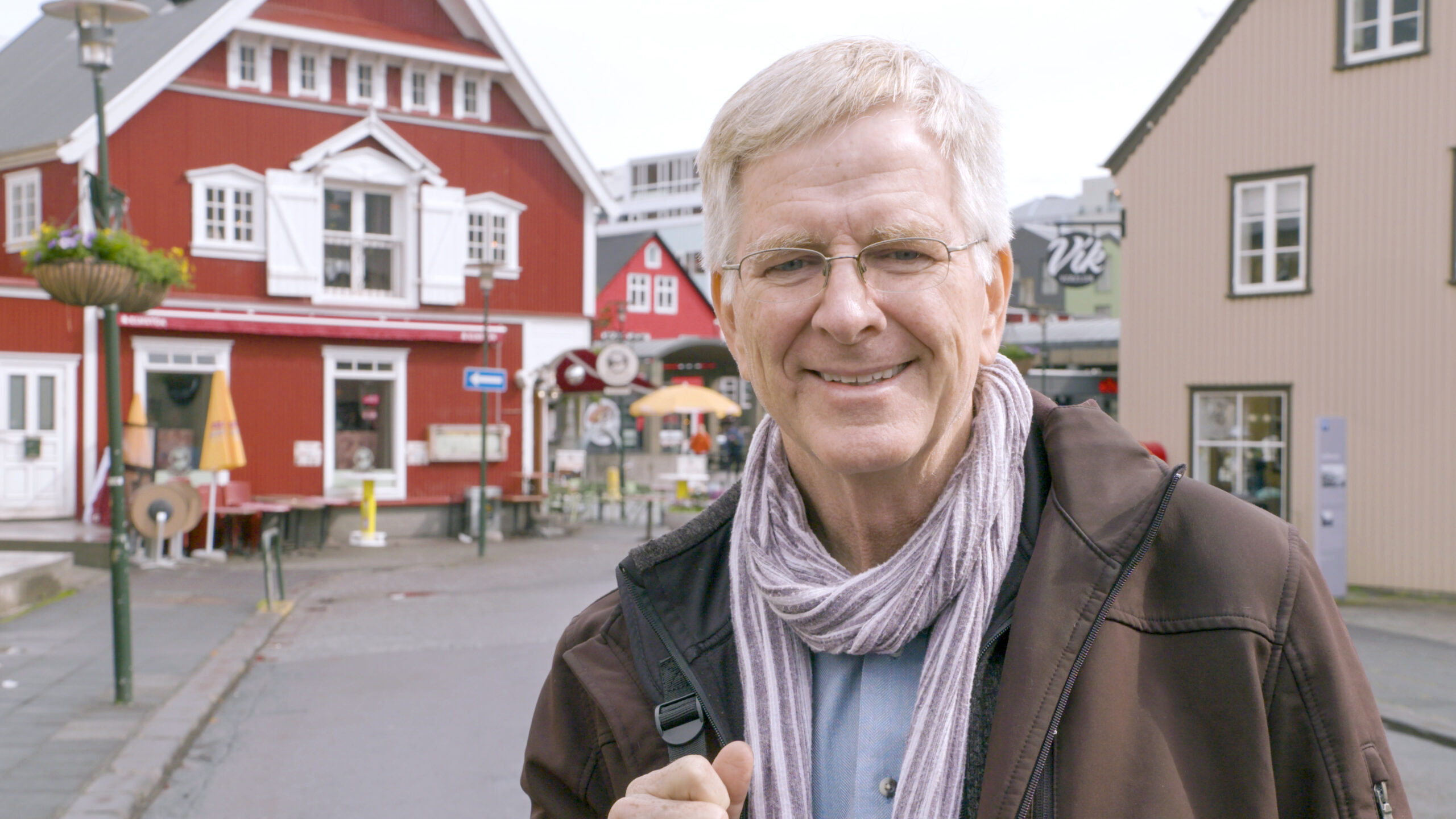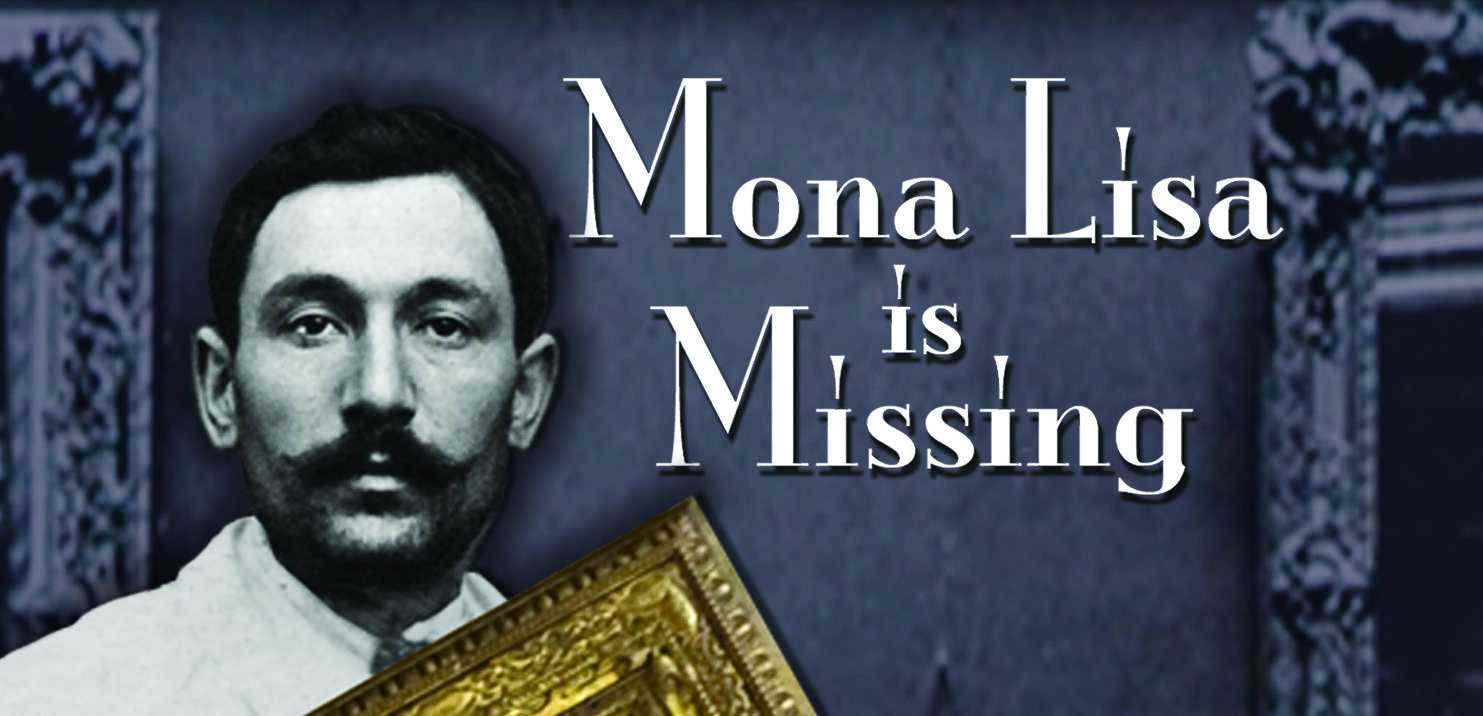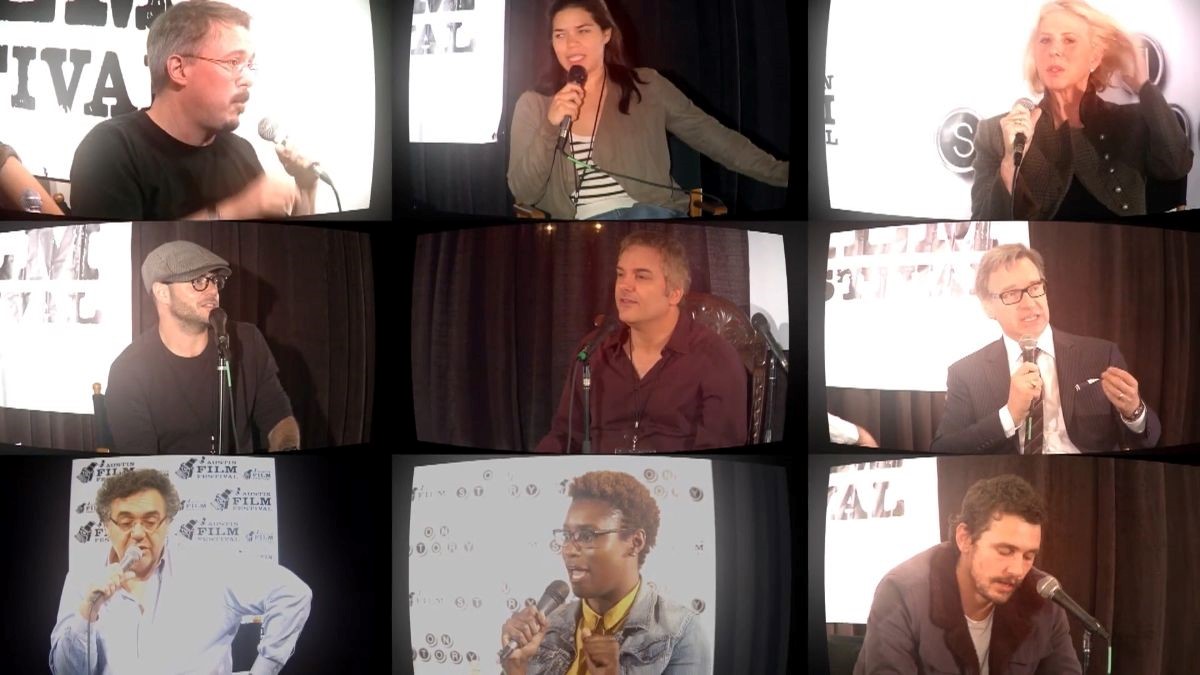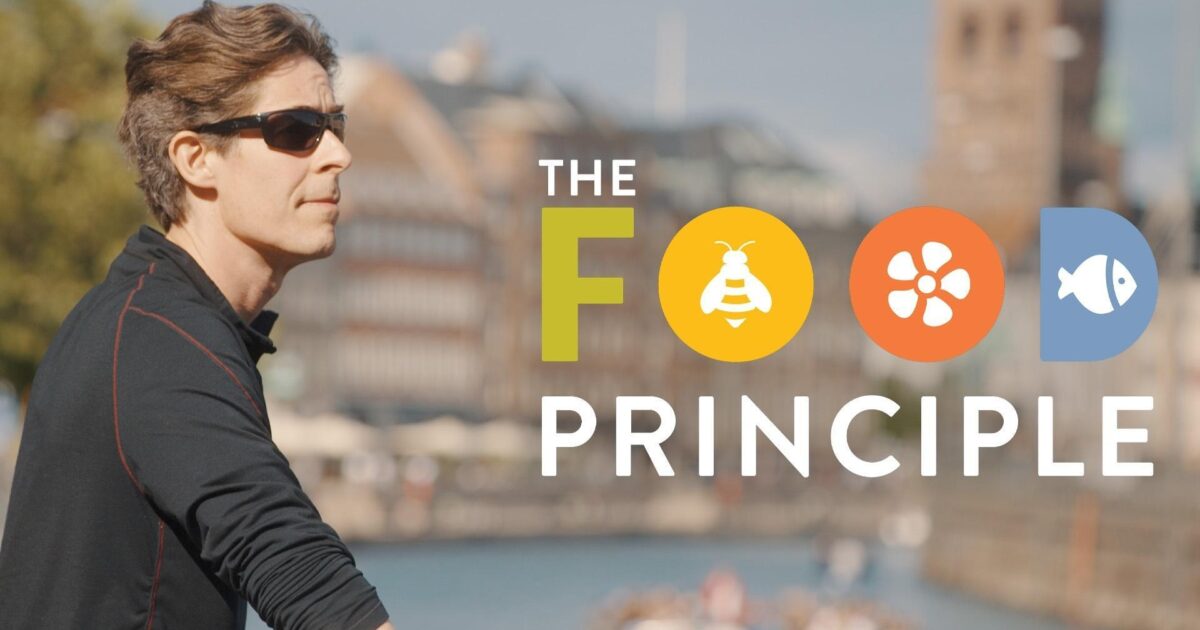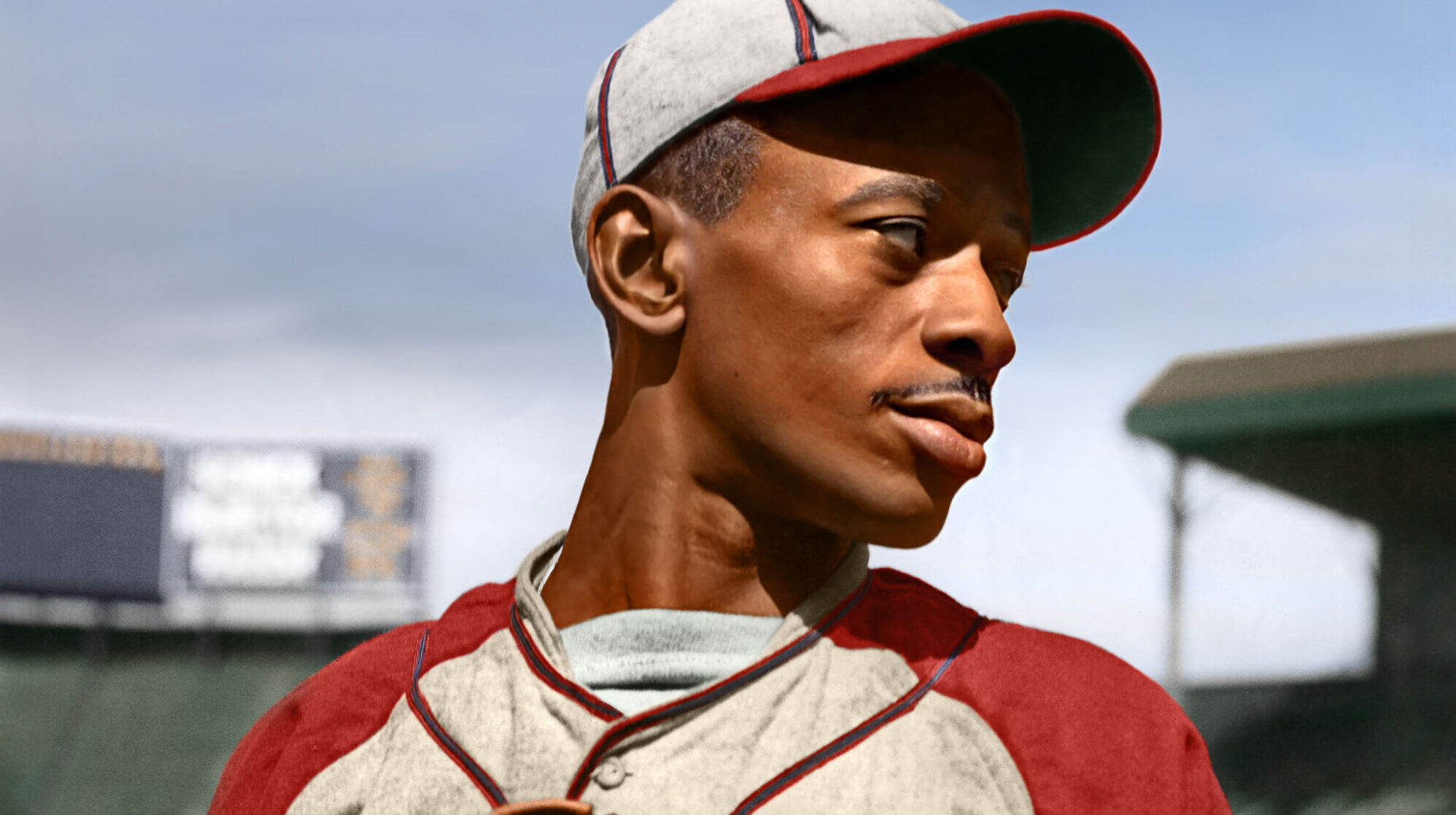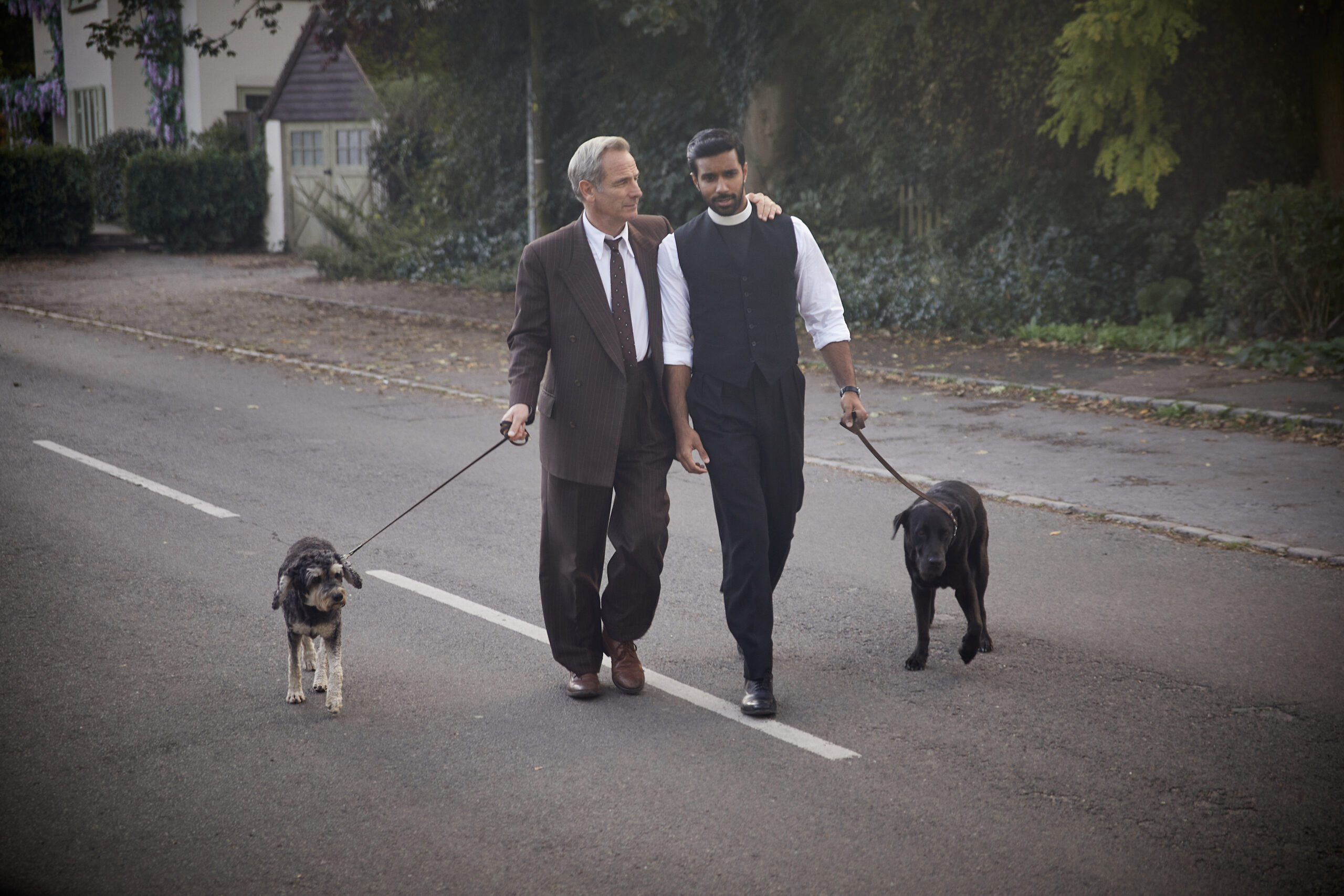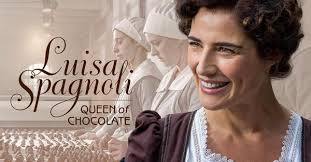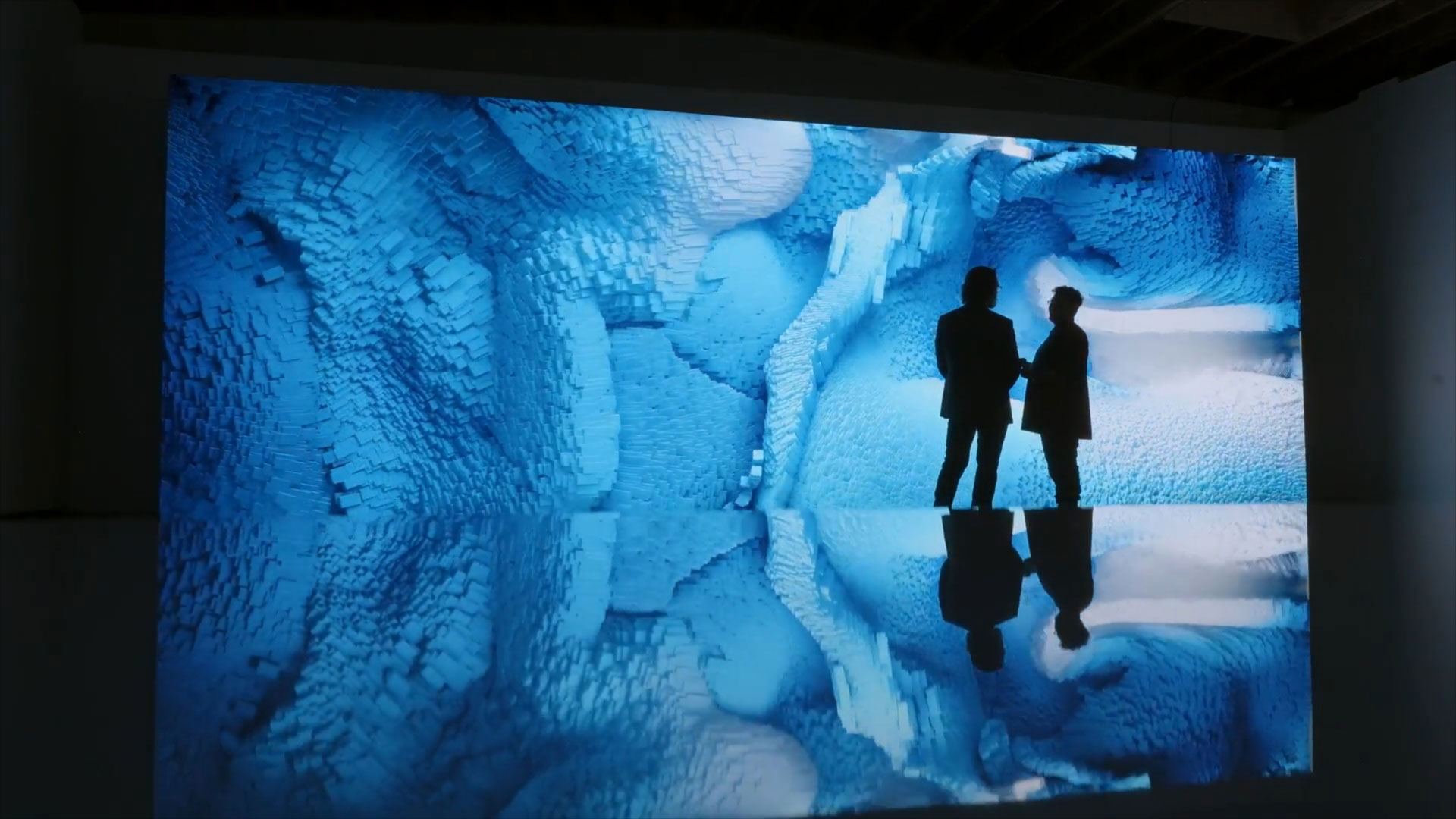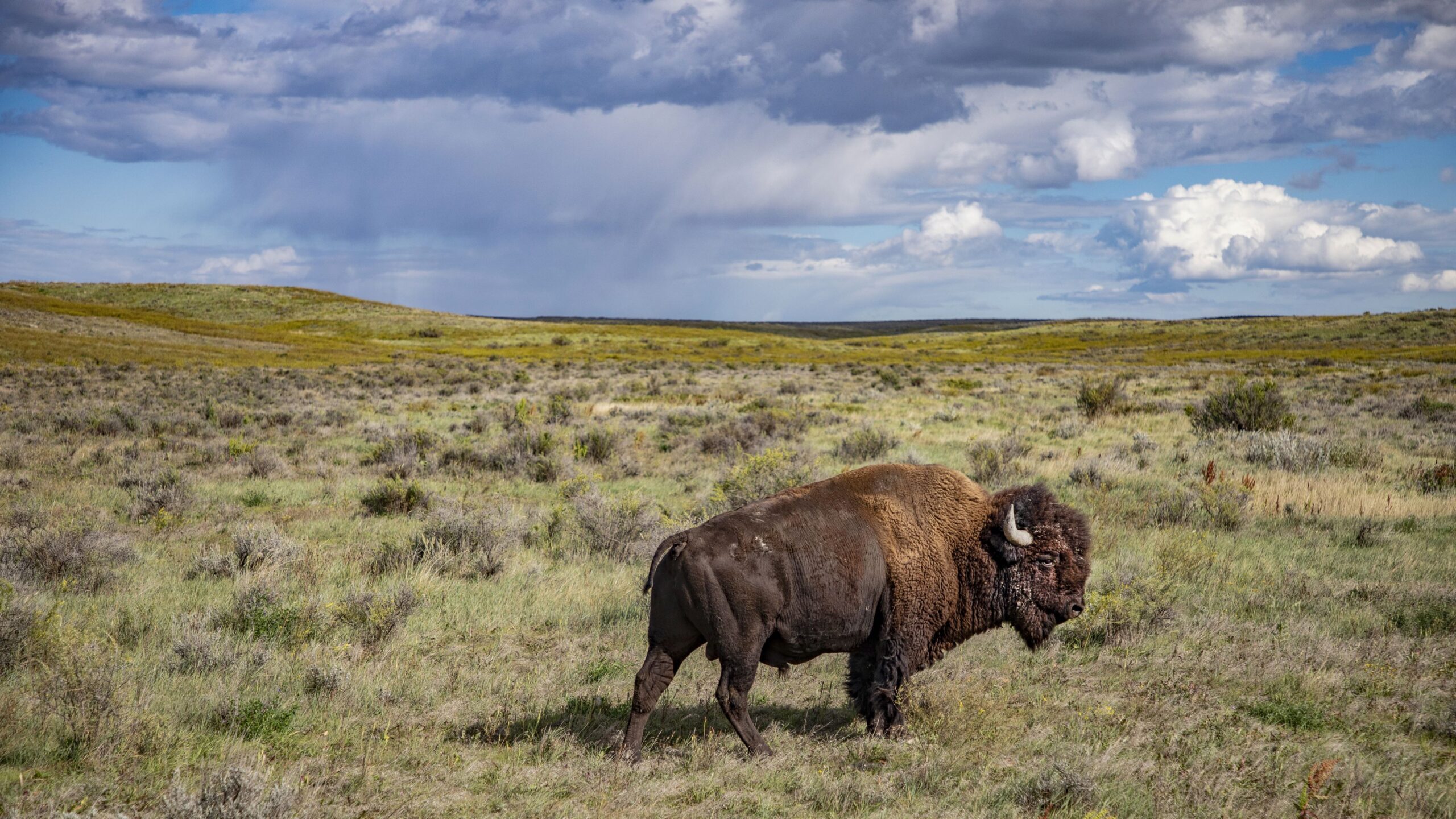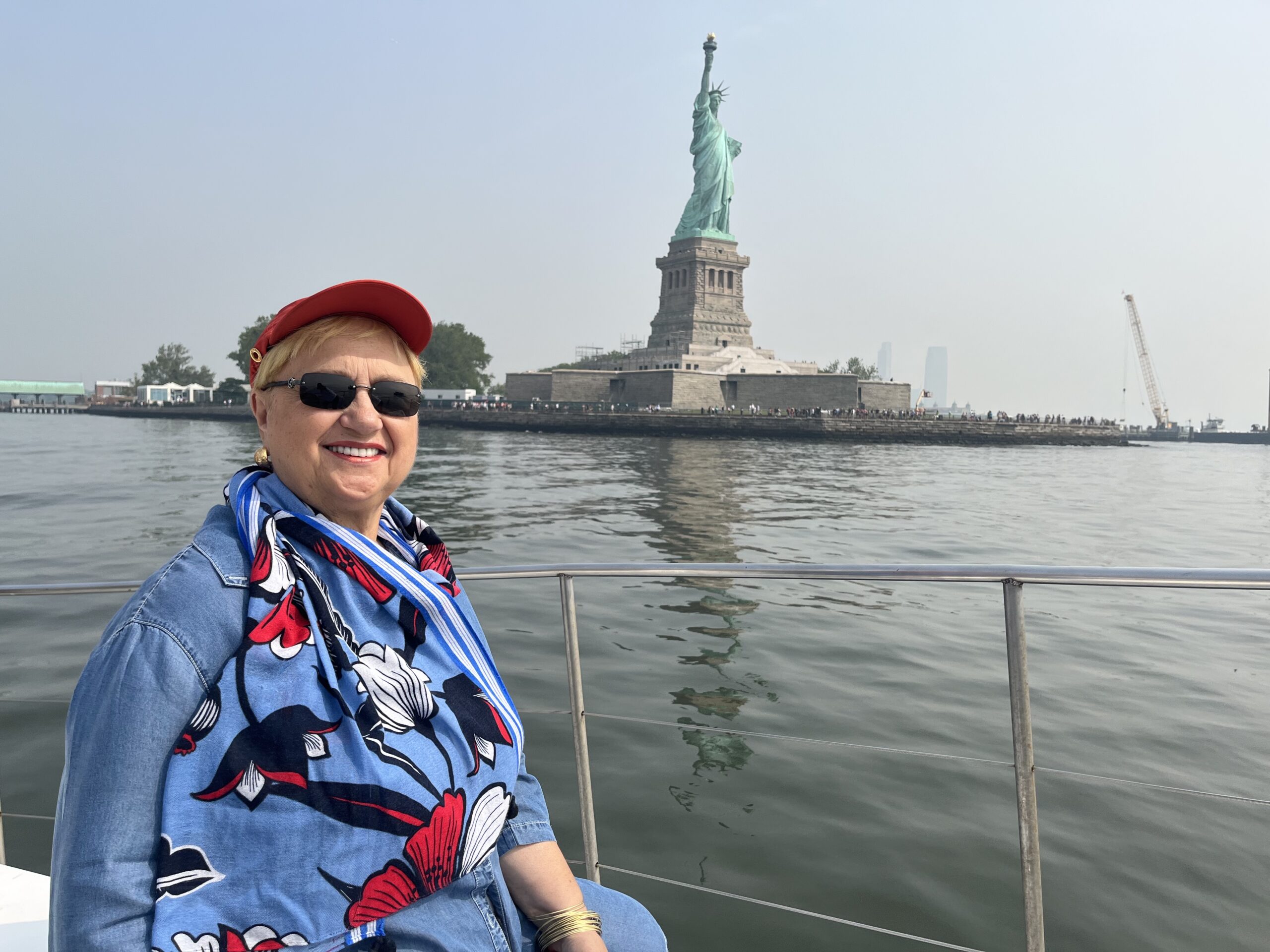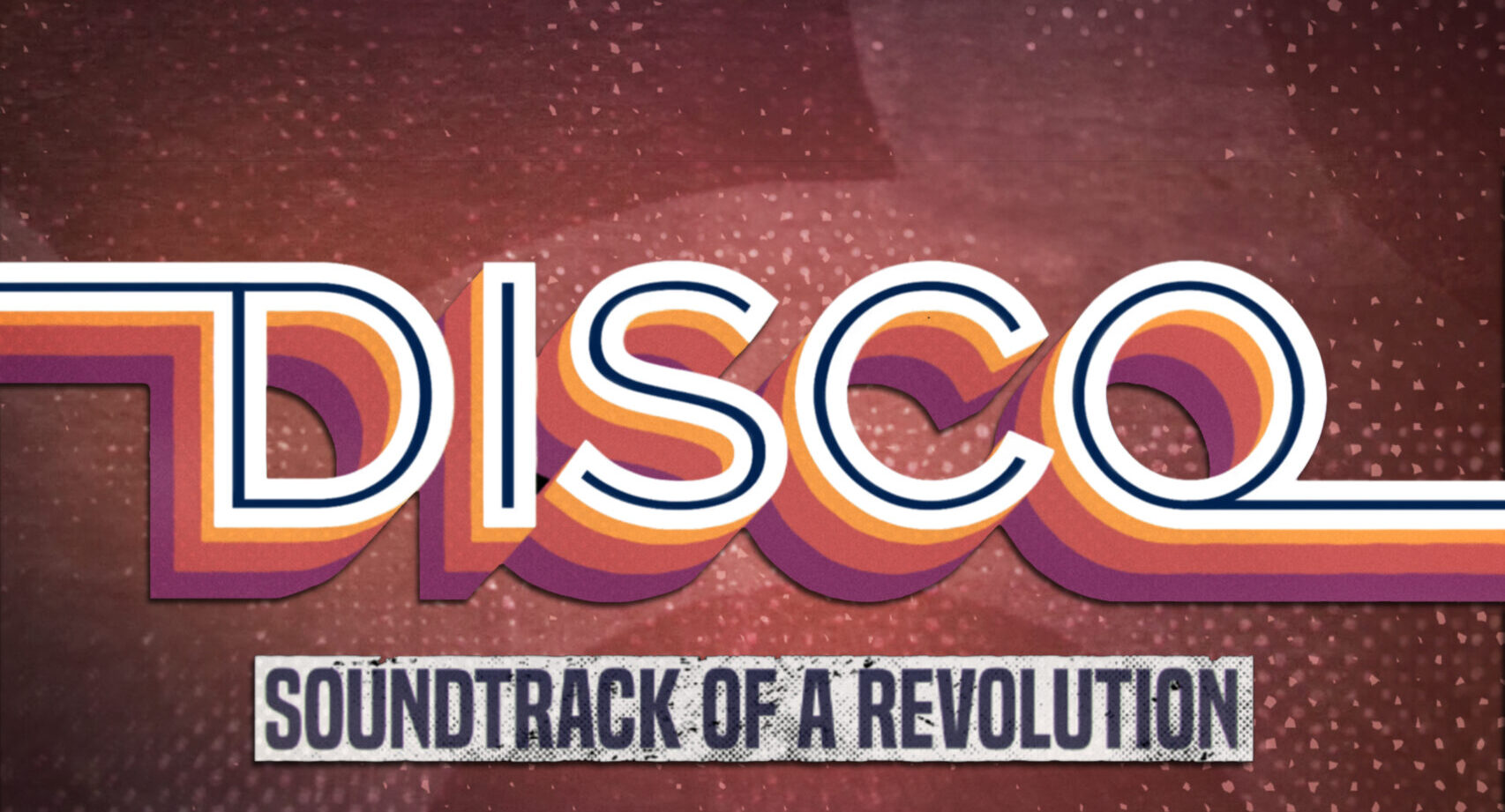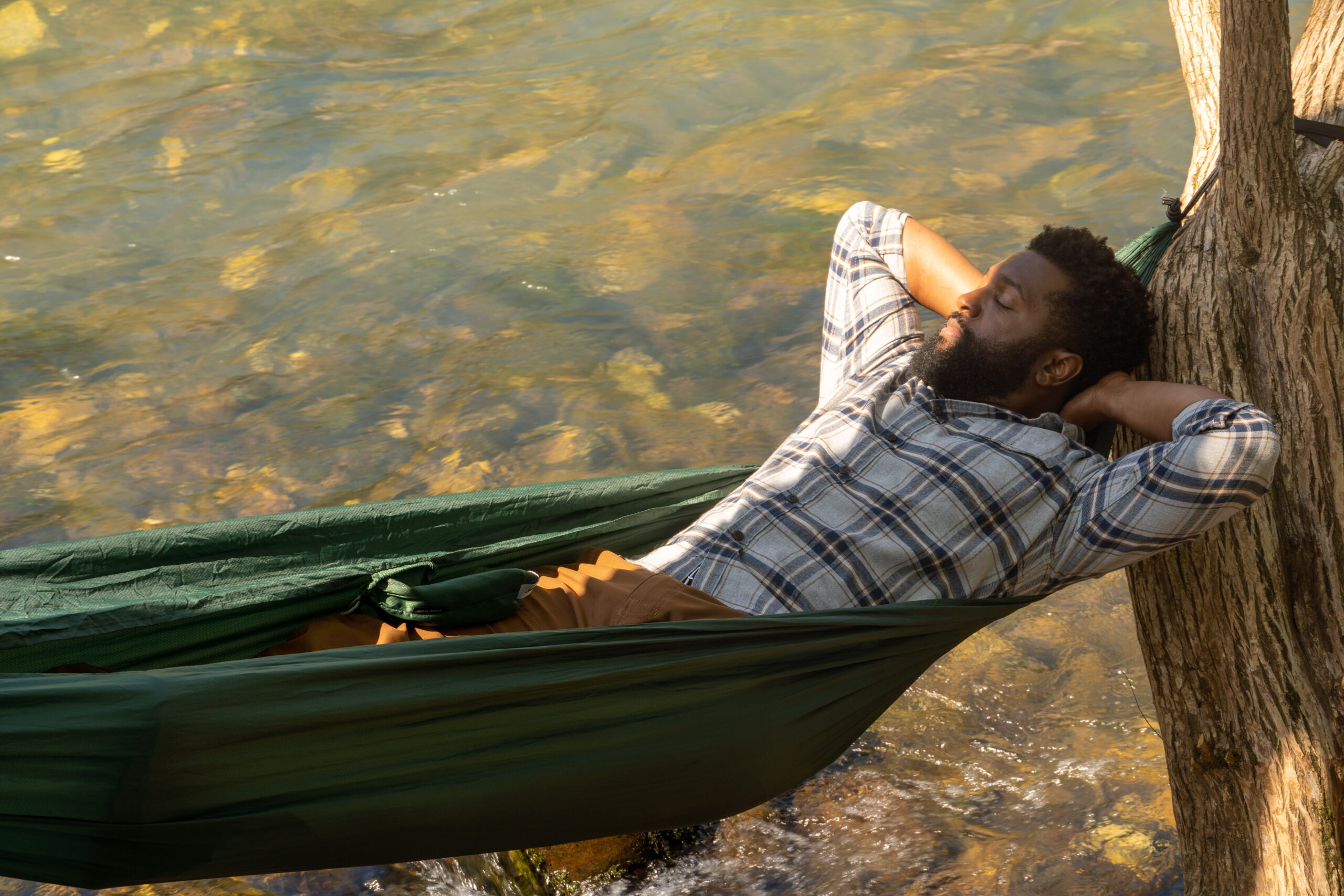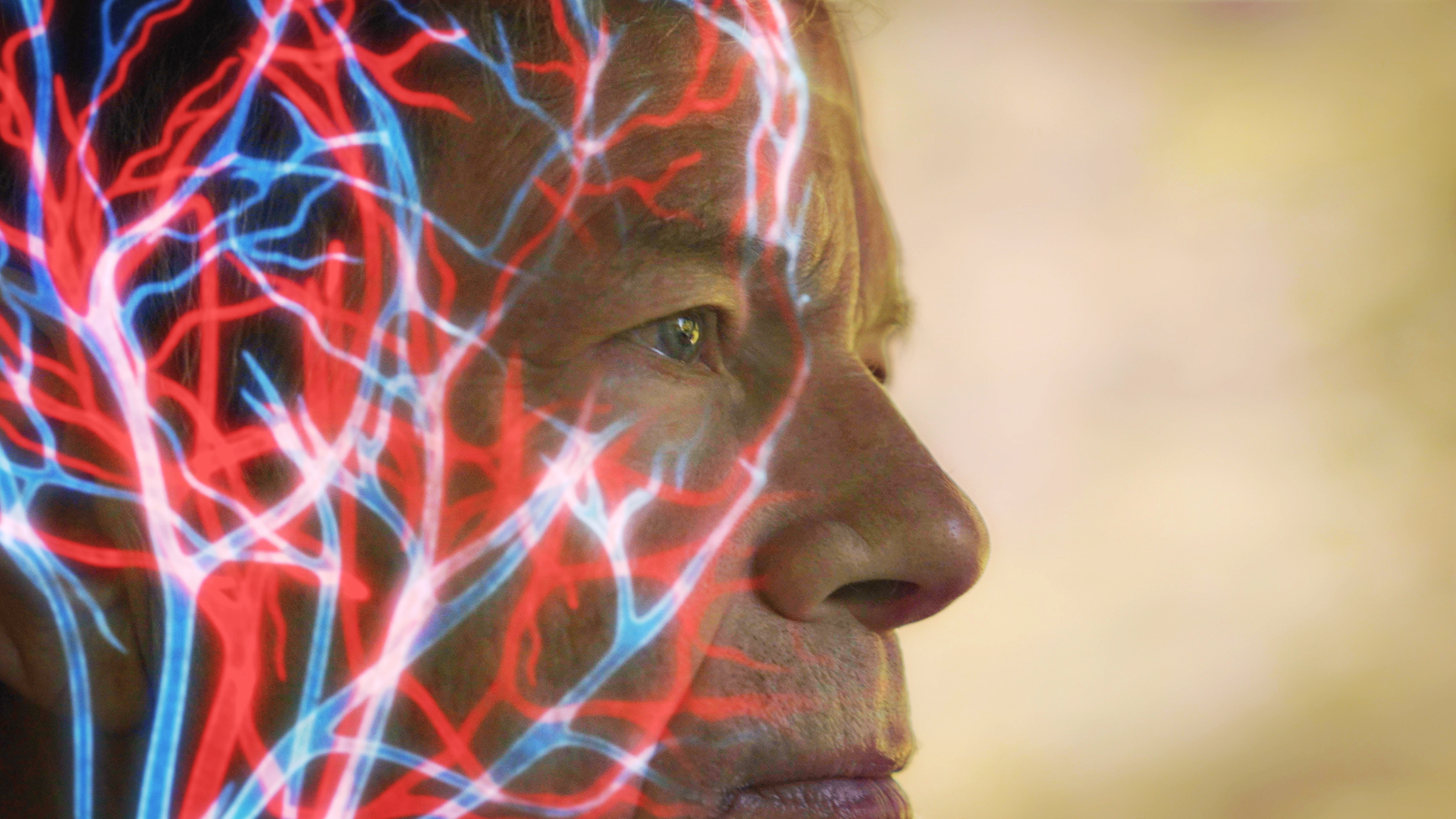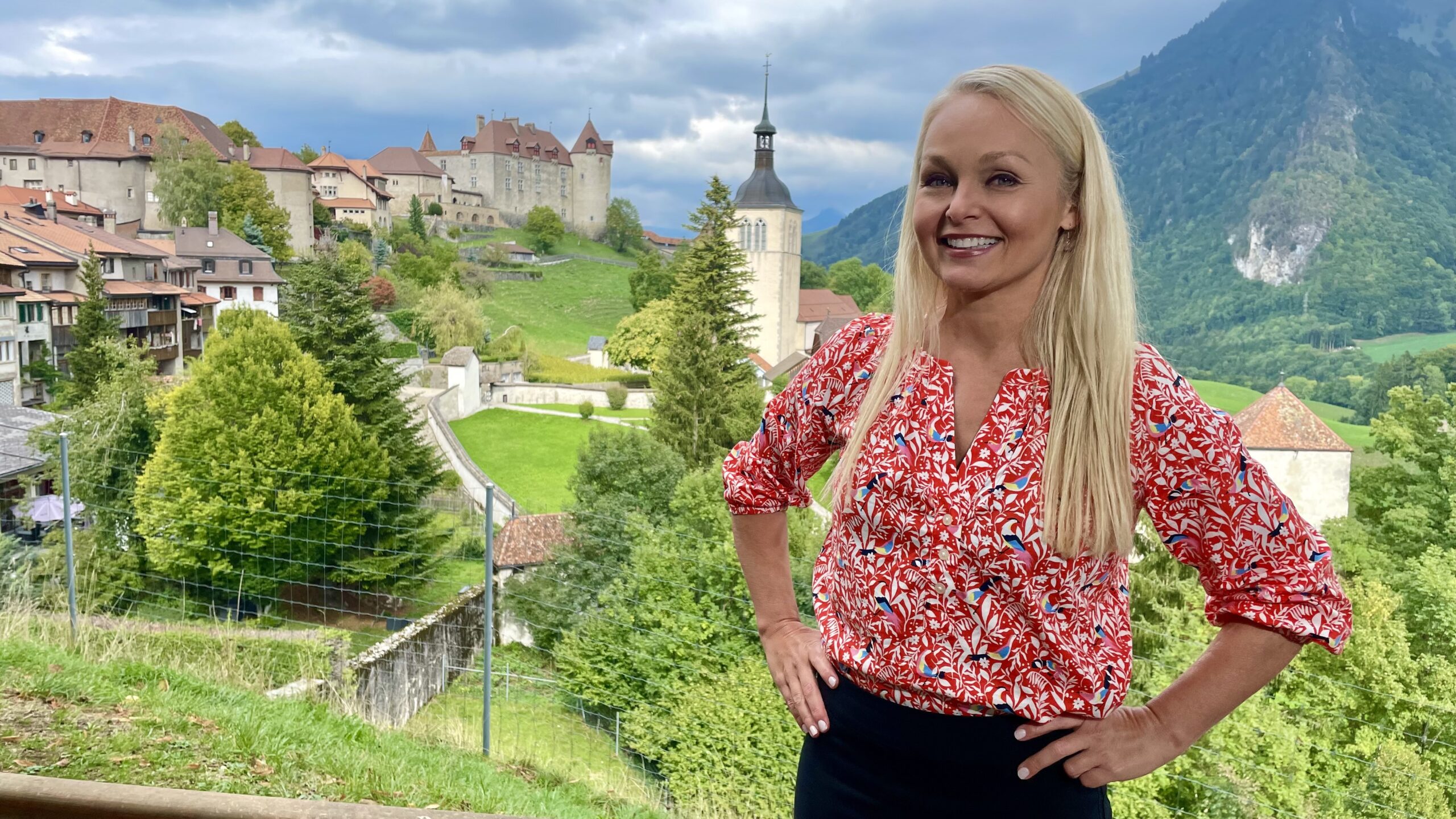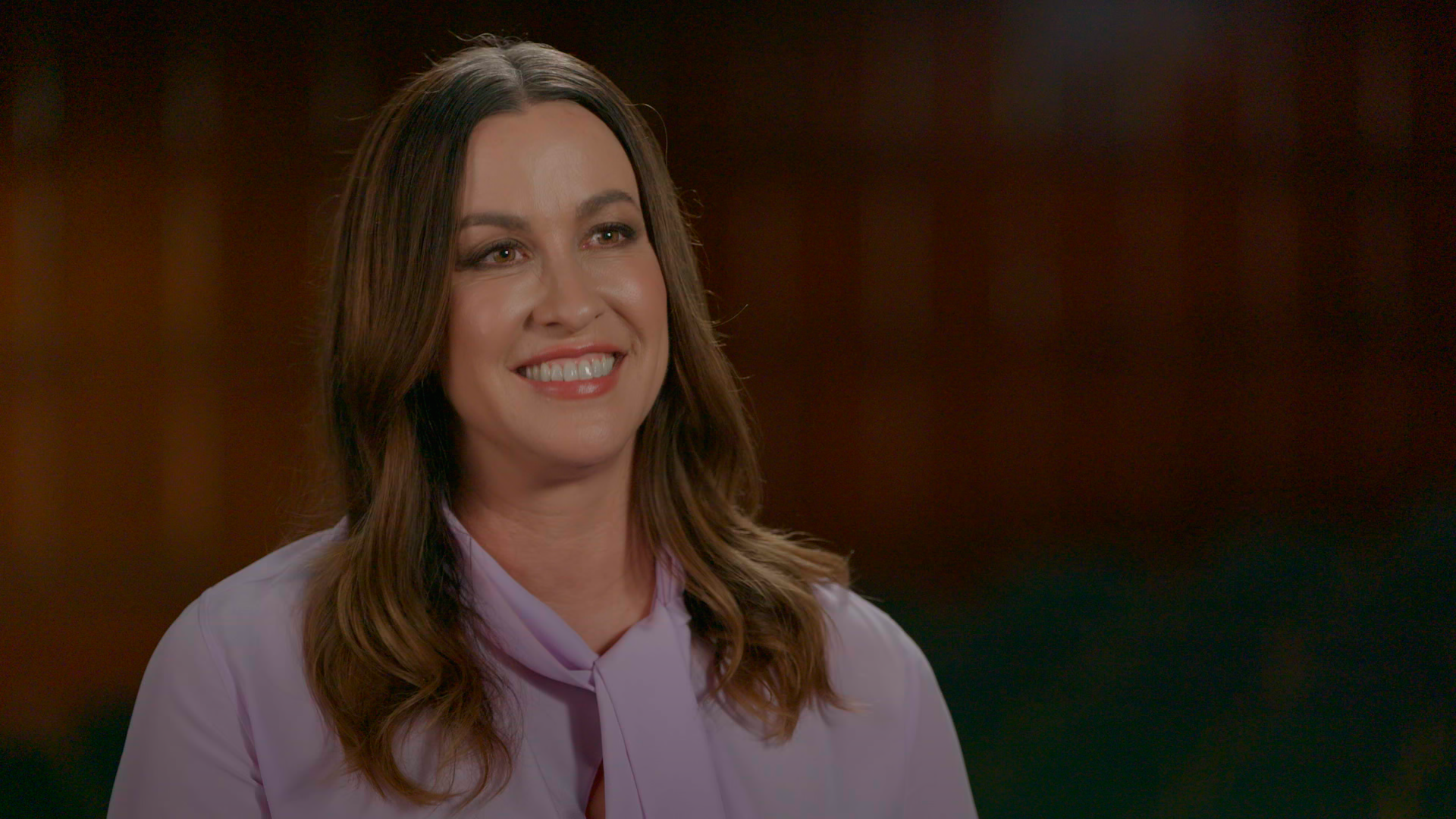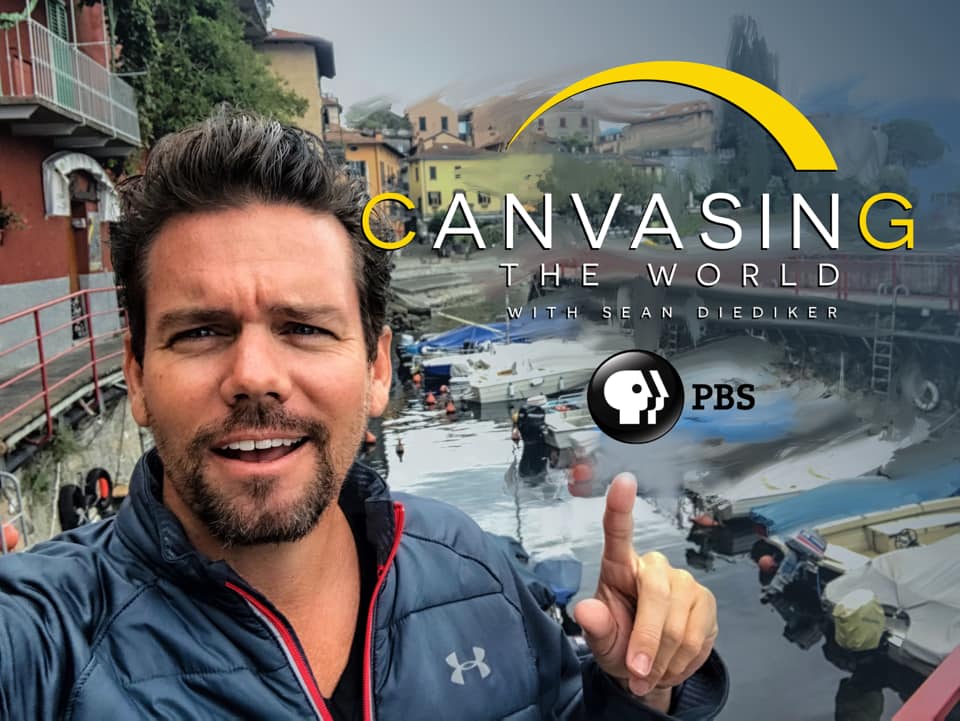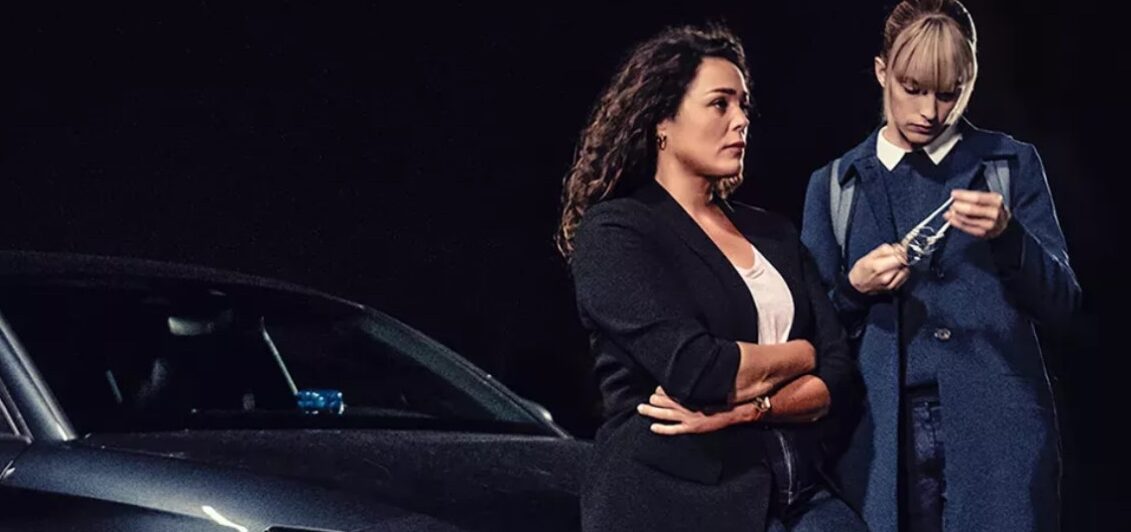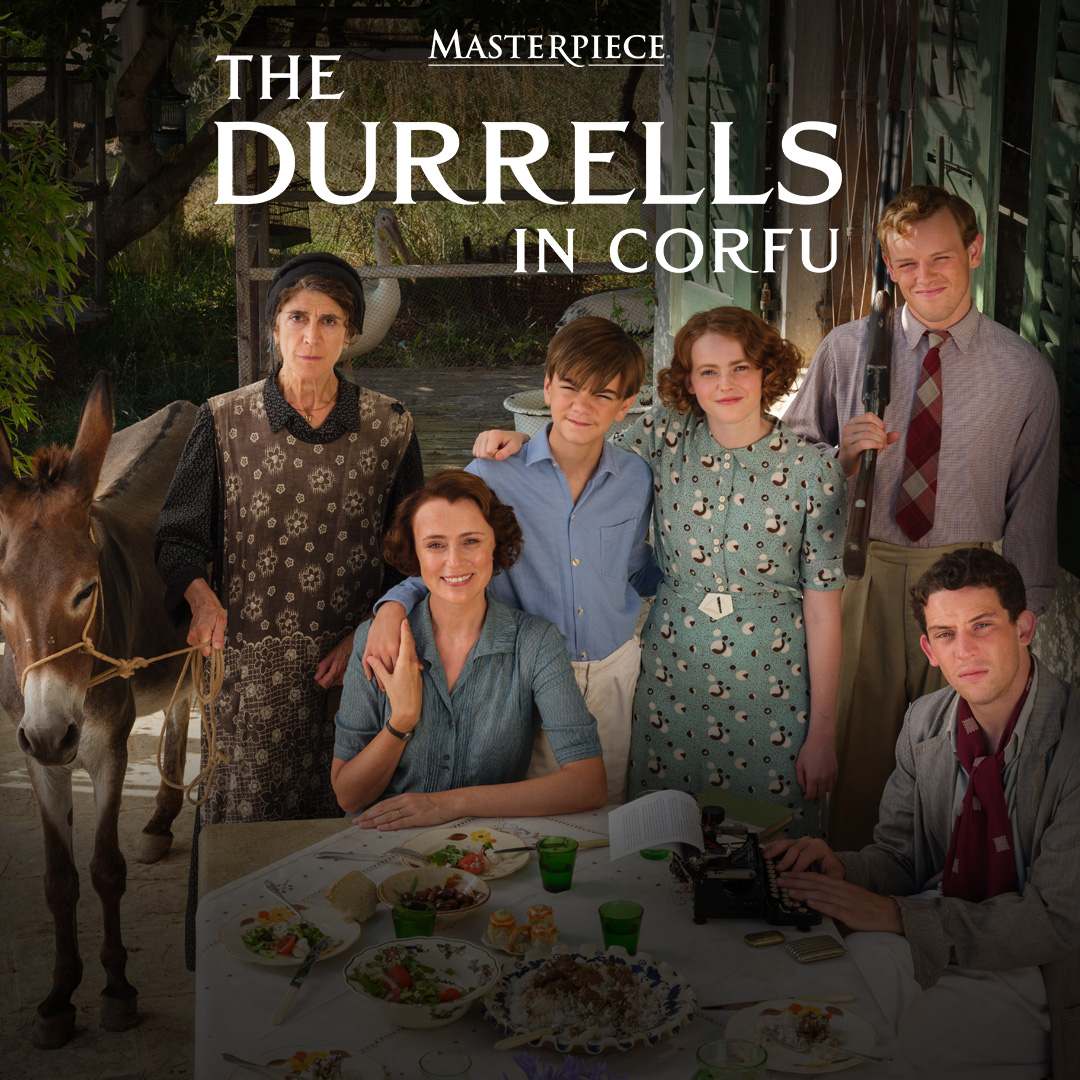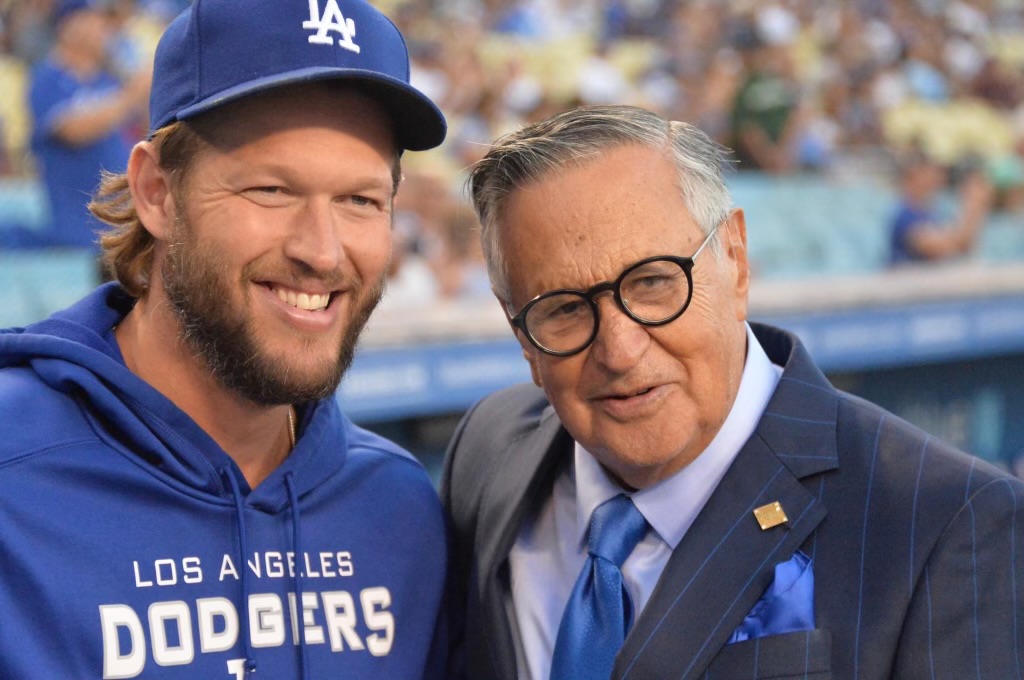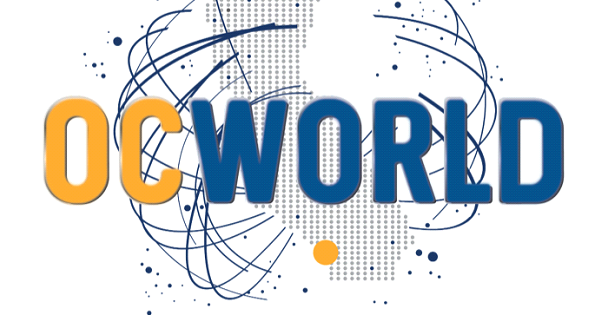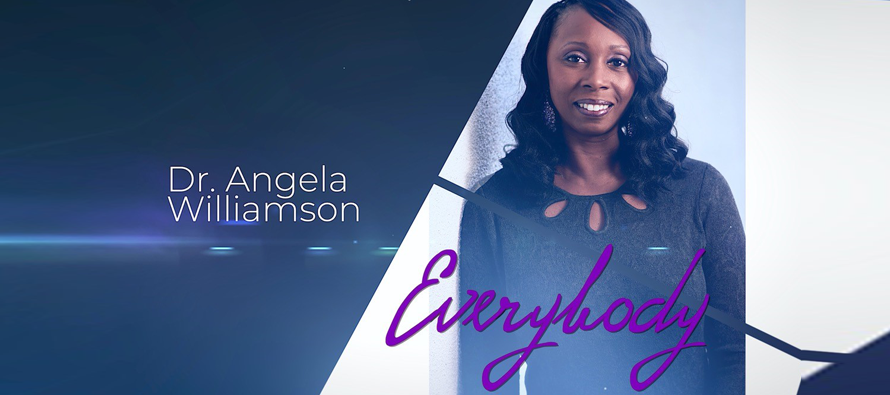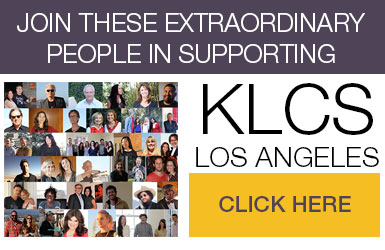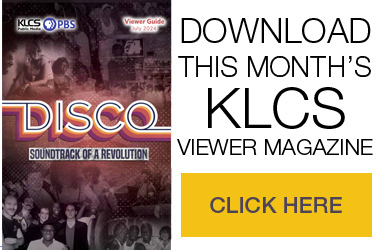In “Les Stroud’s Wild Harvest,” time seems to slow down as we watch Les forage for food around his Oregon home while chef Paul Rogalski cooks what Les gathers. It may seem unusual now, but it’s something humans have done for centuries before stores and markets existed. While it’s been airing on Create, just in time for Earth Day, this month KLCS features the show on our Saturday afternoon cooking block. We talk exclusively to Chef Paul, from his home in Canada, as he shares how the show came to air on PBS, how Julia Child influenced him and how important it is to enjoy the process of foraging and cooking, even if a dish may be deemed a failure.
Chef Paul, how did you connect with Les Stroud on this show? It’s a good pairing with Les foraging and you cooking his findings, is that mostly how that works?
Oh man, this is a great story. Les and I met years ago on set for a television series I was cast for, Les was a special guest. We were in Mexico and essentially we were hanging out on the beach one night licking our wounds after filming. We started talking, “Hey, wouldn’t it be a cool idea if we had a show where I gathered things and brought them to you and you cooked them.” We thought it was a great idea. Years later, we finally had a chance to make reality.
Foraging is so important because we did it, originally, as human beings.
Yeah, to me, it really is to me one of those things where it connects us with nature and I think that’s a really important thing right now. We are part of this planet and to be able to enjoy it is one thing, but to go out to forage, you get to know it more intimately and I think it develops a better relationship and one of respect.
What is the aim of the show? Les always tells viewers he’s not a substitute to a local foraging expert.
The aim of the show is pretty simple. We want to empower people to go outdoors and explore in their own backyards. Go for a walk and if you’re one of those people like myself that as you’re walking through and you’re wondering, “Hey, what is that over there?” And in my case as a chef, “I wonder if that’s edible.” It’s just a show all about that. It’s not built to be drama-ridden, it’s built to be enjoyable and really to celebrate the time and place that we’ve filmed in. Just to get people to do the same thing when they’re out for their own adventures.
In the episode where he found wild turkey road kill, he let you pick rose hips and mustard greens. Were you a forager before this and have you widened your foraging efforts and knowledge now because of Les and the show?
I can say honestly I was not a forager, I have been foraging and I have strong interest in it. I’ve had rose hips before, not those ones in particular, there’s so many different varieties, but when it came to wild mustard, I’ve never picked it up before. I grow mustard. It’s interesting how having a restaurant garden, to supply the kitchen with things, some of the wild ingredients are very similar in look. If I’m picking them in the garden for a guest for a salad, I’m growing them a certain way and I’m picking them a specific way; we’re going out into the wild and foraging, you literally are at a place in time and things can be very different. The vast majority of things that we forage on the show, it was a first time for me playing with these ingredients. The show is not scripted, it’s all authentic, it’s all organic. When I’m given ingredients to test, I’m seeing them for the first time, and not only am I seeing them for the first time and exploring them, cameras are rolling when I’m doing it. So it’s all legit. There’s only one take, it happens, you’ve probably seen I don’t articulate that well sometimes (laughs), but at least it’s honest.
There are episodes where a course you cook was less than successful. What was the intention of keeping that in the show?
Because it was genuine; I don’t know which failure you’re speaking of, because I think there’s been more than one (laughs). But the first one was episode one and we were in Oregon on the coast and I was cooking seaweed. Les gave me a heads up; it ended up getting cut out, he told me, “You need to blanch it.” “Ok, that’s fine.” And then I had a taste of it. “This stuff is delicious, I have an idea!” I did listen to what he said and for the most part I go in blind, I have zero notes, I just have my own senses and my own skills, so this is one of the moments where, “I think I can capitalize on this flavor.” What I didn’t realize is the Bladderwrack seaweed has the quality to it very similar to okra, where this really disgusting textural slime all of sudden came out of it when we were filming. It was great when I put it on the plate and then as it sat there this transformation turned into something that was definitely less desirable (laughs). It tasted good, but, man, it was gross on the palate from a texture standpoint. And that was real.
When foraging in that episode, you didn’t take as many rosehips, is that because you’re always aware of the impact and thinking of leaving enough in the environment for later?
Absolutely. And also being aware that we only need so much to get the recipes made and for me to cook with. It’s one thing if I was out foraging for my restaurant and then especially we would be very careful and selective about the volumes that we’re taking because we don’t want to affect any balance that has already taken place by nature. We just really want to have our share even if it’s a tiny bit and sometimes, quite often, we don’t take anything because it’s not appropriate.
We have mustard in L.A., black mustard, which is everywhere. I wonder if that’s edible, it has yellow leaves in the spring.
I wonder as well, if I’m down there, I’ll go looking for it.
Do you make it down here a lot?
Yeah quite often; I have family that live in the Bay Area, Walnut Creek. But COVID has really thrown a curveball, we were planning on shooting a lot of episodes in the U.S. the borders are definitely an issue.
What are some of your favorite places, if you do come?
I tend to like to get out of town a little bit. I like to head up the coast. I love the Monterey area. It’s just beautiful, that whole coastline is magical. When you’re on the ocean, you’ve got this different source of greenery and you don’t have to go far and all of a sudden the rolling hills are full of grass. It’s beautiful.
Do you have any favorite places to dine?
I don’t. Half the time I am traveling I’m either working an event or I’m there and taken to restaurants as a guest. The last time I was in your area, I was in Orange County and it was a full on Disney experience (laughs), Anaheim was our destination and it was a family vacation. Other than that, most of my time is spent more in Bay Area and north of that – Santa Rosa, Napa, Sonoma.
Did you need to have any special training to cook with such unique ingredients Les finds? And/or has the show stretched your own cooking abilities?
That’s a really good question. If there needs to be anything that needs to be brought to my attention, Les definitely lets me know. And there are some things you have to be careful of. Milkweed needs to be blanched, cooked for us to be able to digest it. There’s some toxins that are in there, poison to us, but blanching looks after that. So I’m luckily well informed before I start cooking. I don’t think it’s changed my cooking style a lot. Really what does impact how I cook are locations. If we’re in the field and I have a campfire, I have a field kit and that’s all I have to work with. If we’re filming in Canada, even in Oregon, we’ve got a full kitchen here and there to work with and other times I’ve got nothing. My field kit is really basic – flour, sugar, eggs, I don’t have a lot to carry with me and it’s a portable kitchen, so I use a wok a lot. My entire kit fits into a Pelican case, about the size of a suitcase that goes with us everywhere now.
Since there’s less protein when foraging, how intentional is the focus on sustainable foods that are known to have a less detrimental impact on the planet and its resources?
Yeah it’s definitely a consideration and we’ve had a lot of conversations in between episodes and during while we’re having downtime; that whole protein side of things, because it’s a big deal. I am focused on sustainable; I have been for a very long time. I received recognition from the Monterey Bay Aquarium for my sustainable food practices back in 2009. The reality is we need farming and we need to respect everything that we harvest, whether it’s harvested from a farm or from the wild. When it comes to protein and animal-based, we need to eat it all and we have to stop wasting; and that’s one of the big messages. We tend to be excessive in our consumption and we don’t need to be. If you’re a hunter and most of the hunters that I know, if they take a life, they celebrate that life and every single part of that being has gone to sustain t heir family. Everything is used, nothing is wasted and that’s really crucial. And portions we don’t need to eat, we can get away with less meat in our diet. And sometimes if I’m pulling something out of the garden and I have the most beautiful vegetable, I want to showcase it as the most beautiful vegetable and that philosophy comes through in our show as well. If we’re harvesting milkweed pods, my goal is to showcase the milkweed pod. That’s what I want to showcase, that’s what I want to tell the story about. Not about the steak that I’m serving with it.
The show seems to have a small footprint – limited crew and equipment. Was that intentional and what drives that decision?
Yeah that is intentional. There’s only three of us most of the time. Here and there we’ll have a second cameraperson, they’ll either be shooting still photography or B-roll for us. This really started as a passion project. Les and I already had a relationship, but there’s a person that I know who’s an award-winning filmmaker that I thought Les should meet. We arranged a Skype meeting one day and I introduced Les to Kevin and Kevin to Les. This literally was just before Les was planning to come up to Alberta to do some public speaking and we thought, “Why don’t we just go shoot a pilot, have some fun and see what happens?” That was the beginning of all of it. So this small team was just us three, we are all business partners on the show as well and we all divide and conquer, we all have our roles and responsibilities besides the things you see on screen. I, as an example, look after the website and social media and getting our book to publish and Kevin and Les do all the things that have to do with the video and audio that you see on screen.
Where does your path of being a chef fit with this show? Has it helped you become more creative even though in the old days, this was, ironically, how we had to cook? We had no choice but to figure out how to cook what we foraged, but the irony is you’re cooking what we used to gather rather than figuring out what we want to cook and buying it at the supermarket. You have to cater things to what you get, which is the original way of cooking.
It is and I think owning a restaurant and being a chef has taught me one of the most important lessons and that is you never waste food. To a restaurant food is money; you can’t throw away money. So you have to make sure that if you are making soup and you’ve got onion peels, the onion skins most people throw them in the garbage or they go in the compost, but they also help color stock. Your carrot peels would go into the stock as well, nothing was every wasted. The thing with restaurants is there’s always things in the fridge. You buy an inventory of all the ingredients you need to cook for guests, but one night everybody might order the same thing. You definitely have runs on items. As a chef I look in the fridge going, “I need to order that, but I have all this other stuff that I need to move, it’s still beautiful and I want to showcase how good it is. I’m going to make the special about that tonight.” So my training intuitively has been just to celebrate all the good things that are in the fridge and that really lends itself to a free-style way of cooking for myself. We have a tasting menu at my restaurant Rouge, it’s in Calgary, we’re just coming up on our 20th anniversary and we were the restaurant that made a tasting menu and the chef’s table a big deal in our area. And that was all based on impromptu cooking. Guests would arrive, we’d ask, “What do you like? What don’t you like and what are you allergic to?” And then we would just free style in the kitchen. It would be a great chance to say, “I know this person might not try this ingredient on their own, but let’s make it taste good and give them something exciting and fun.” That became a trademark, which really lends itself well for this impromptu cooking where almost everything that happens, it doesn’t really show it on the show, but it’s very much an Iron Chef type transaction, “Here’s your ingredient, here’s your timeline, go!”
What was your path to becoming a chef?
I’ve been cooking professionally since I was in grade 11, Ii was working at the Banff Springs Hotel between grade 11 and grade 12 and at the Fairmont Hotel in Calgary while in grade 12 and straight out of high school into culinary arts school and never looked back. I’ve been mainly focused on fine dining. I’ve traveled internationally, I’ve been very fortunate to spend time in places like Singapore; I lived in Grand Cayman for a while. I’ve experienced hotels and restaurants, but I love restaurants.
What’s your day like now when you’re not on the show?
I come to work, I come to my restaurant, plug holes. Whatever needs to be done, I do. There’s many days that I don’t pickup a knife and I don’t touch a pan and I don’t cook. I’m busy writing, looking after our website, books or recipes or content, updating the show and my restaurant’s website, that’s in my wheelhouse and social media. I also find time to keep on top of all things TV show related as well.
What’s your favorite, easy, healthy go-to dish to make?
That’s a really good question. I tend to go for stir fries. One pan dishes most definitely and I love layering flavors into it, so meats and vegetables and sometimes no meat, but definitely quick cooking, I don’t spend a lot of time cooking for myself. I spend a lot of time cooking for company and for guests at the restaurant, but some dish just takes days to make and I eat just like everyone does, “Ooh, bam, I’m hungry, I’ve got to eat now (laughs),” I like sandwiches too, I love making a good sandwich.
How did the show come to be on the air on PBS and Create? It’s one of the only ones of its kind, foraging wild findings and not from someone’s farm, plus you’re Canadian.
It’s been a really interesting process. Literally after our first episode and we were doing that for fun, we thought if anything it’s going to be a YouTube thing, who knows where it would lead to. Les posted a picture of us online and immediately we had a response from somebody from PBS who was interested and somebody from Warner Bros. We were excited, like “Holy cow is this real?” This is where Les is very knowledgeable about the world of television; he made it happen.
Do you get feedback from this show and what is your most asked question, and your answer?
The most asked question is when is the cookbook going to be out? As soon as we can; we’ve just had some snags, they’re COVID-related. The book’s written. We need to find a publisher. We get a lot of feedback, in fact, we haven’t had any negative feedback as of yet which is surprising all of us because there’s always negative feedback. The most common thing is, “It’s so nice to see a show that’s an escape and [not] filled with drama. It’s just a breath fresh air.” It’s also very cinematic, which is fantastic. I think people feel like they’re really connecting with the time and place that we’re in.
In quiet moments, the soft music is nice.
Kevin did the piano and Les did the theme show.
Most people have had a Julia Child story, do you have one?
(laughs) Julia child was amazing! I do have one. I remember years ago I can’t remember what magazine subscription I signed up for, it was similar to Columbia House, so I got all these magazines, but the only reason I did it was a copy of Julia Child and Jacques Pepin’s cookbook. I got the book and it was like, “This is amazing.” We’re lucky because we’ve always had a PBS feed, ours came in from Spokane. And I would laugh and giggle and drink along because every episode it seemed like there was glass of wine either on camera or behind the camera. Maybe it was just her vibe, maybe it was just me and I made it a drinking game (laughs) to watch her shows. She was the best; the first food television that I ever watched. She’s O-G food television; her and the Galloping Gourmet. There’s a couple of shows that really provoked interest in me. I was very young at the time, but I’m very fortunate I have met Jacques Pepin and Jacques is such a nice man, still cooking, still whipping up a storm.
Do you think about how you’re following in those footsteps of teaching cooking on PBS now?
I have and the time is so different. And another television network that started out as being tutorial cooking shows and I really enjoyed watching back then has augmented into a network only showcasing reality TV competition type stuff. And what I find is there’s such a hole left by that, a void. And I know that our show when we’re filming I, legit, am just trying to figure out these ingredients and work with them and explore. It’s not really a thought of beyond that moment. I’ve never gone into it with an objective of, “Holy cow, this is an amazing thing, I’m in the category of Julia Child or Jacques Pepin. I’m not.” That style of show that they have is so educational and so informative and there’s so much depth of content to it. If I were to do a show like that, my headspace would be completely different. That would be my focus; my focus would be on education. In this case, my role I think is more to be sincere about the exploration of these ingredients. It’s very simple what I’m doing on many levels for how complicated it actually is when cameras are rolling.
Do you want to add anything else for viewers?
It comes down to the premise of the show and why we’ve done it. It’s to get people to get to know their backyards, to get to know their areas, to look at the world differently and enjoy the process. That’s the big thing. Food is something we all need. We all have to eat and every meal is a new opportunity to explore, to taste and to enjoy. And sometimes there’s wins and sometimes there’s not, but there’s always a new opportunity. And I think that’s the big thing is just to take the time, appreciate what we have and celebrate all the good things that are out there.
-/-/-/-/-/-/-/-/-/-/-/-/-
Viewers can tune-in to Les Stroud’s Wild Harvest on KLCS, or stream at: stream.klcs.org, beginning Saturday, April 10th, 2021; the show is also airing on KLCS’ CreateTV.
You can follow Chef Paul and Les Stroud’s Wild Harvest’s on social media:
Instagram (https://www.instagram.com/chefrogalski/) and
Facebook (https://www.facebook.com/reallesstroud/)

